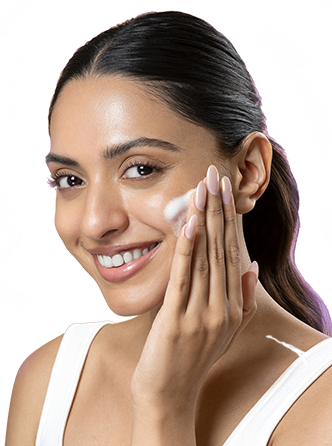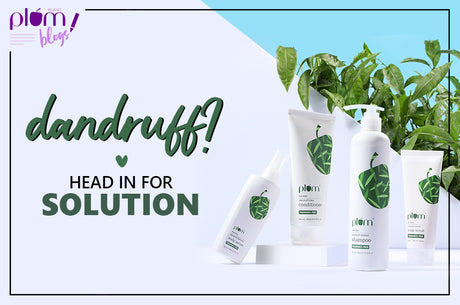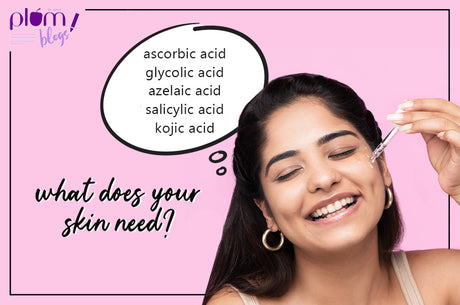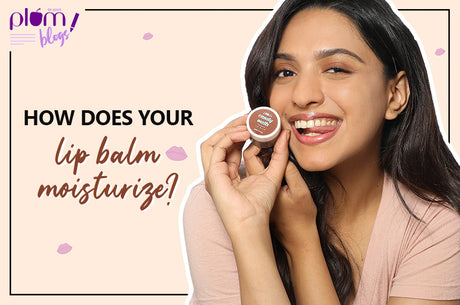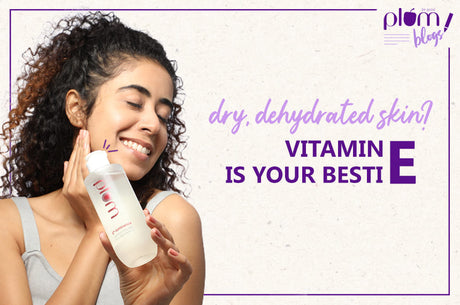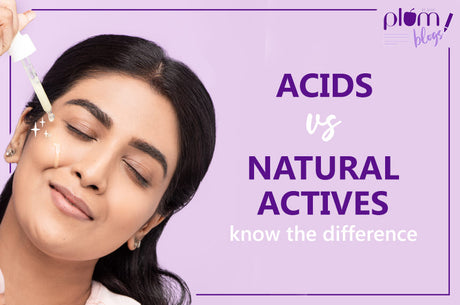In our
last post on "Simply Speaking" we covered the term COMEDOGENIC. Today we take a look at another important term: HUMECTANTS. Are humectants the same as moisturizers? Which are good humectants you should look for in the ingredient list? And which ones should you avoid? Time for a quick look...
Humectants are an important category of moisturizers. Here is a quick run-down on moisturization and humectants:
1. Skin with less than 10% water content is dry
Typically, human skin has moisture content of 10-20% that is required to maintain structural strength, elasticity, skin cell health and other functions of the skin. Water is supplied to the skin from the layers below, and when either the supply is insufficient (drink enough water!) or the loss of water from skin is higher, the water content falls below 10%, which is dry skin.
2. How does the skin maintain this water content?
Water coming from below the skin is lost to the atmosphere through evaporation from the skin's surface. The skin has a lipid (fatty) barrier that also has other chemicals that attract and retain water. This reduces the loss of water to the atmosphere and helps retain the moisture.
3. Why do we need moisturizers?
Deviation from normal can happen if:
- There is damage to the barrier chemically (such as using harsh surfactants like soap or SLS) which destroy the natural chemistry of the skin
- There is physical damage to the barrier: wounds, sun-induced dryness
- Inadequate hydration, particularly in summer months where water loss through sweating is higher.
- Skin diseases
- Cold weather, wherein the air around us is drier, which makes it easier for the water in our skin to evaporate
Maintaining the moisture level in your skin is of utmost importance in all weather conditions, not just in the winters. Choose a light moisturizer for summer but don't go without one.
4. Humectants are moisturizers?
All cats are animals, but not all animals are cats. Similarly, all humectants are moisturizers, but not all moisturizers are humectants. There are various ways to moisturize the skin through aiding, repairing and maintaining the process of natural water retention of the skin. Using humectants is one way of doing it.
5. How do humectants work?
You might have noticed how sugar left open gets moist after a while. It's a humectant - a category of compounds that ATTRACT moisture. When inside the top layer of the skin, humectants help it retain water that is supplied from within.
6. What are some good humectants?
Glycerine, sorbitol, propanediol, sugar, urea and alpha-hydroxy acids like glycolic acid. Propylene glycol is also a widely used humectant, but we have our reservations over it.
7. How should I choose my moisturizer?
- As mentioned earlier, moisturizers work through a combination of mechanisms, so choose one which has humectants, occlusives and emollients. We will cover the last two terms in an upcoming post.
- Always choose a more natural set of ingredients over chemical-sounding ones. Look for information on the ingredient list.
- Avoid propylene glycol - the jury is out on this one (more details later).
- Look for nutritive additions that also supply vitamins and antioxidants to the skin. For example, shea butter, cocoa butter, olive oil, grape seed oil and the like.
- Combine moisturization with protection, and not just in the summers. Choose the right level and type of SPF. You can read our post on sun protection here.
Choose wisely, stay hydrated, and be good!



